
Weird But Educational→The Wright English Blog
Weekly Series
Vocabulary Showcase - Mondays
Business Builder - Tuesdays
What The Fluff Wednesday - Wednesdays
GCSE and A-Level Goblin - Thursdays
Gateway to Grammar - Fridays
Blog Topics
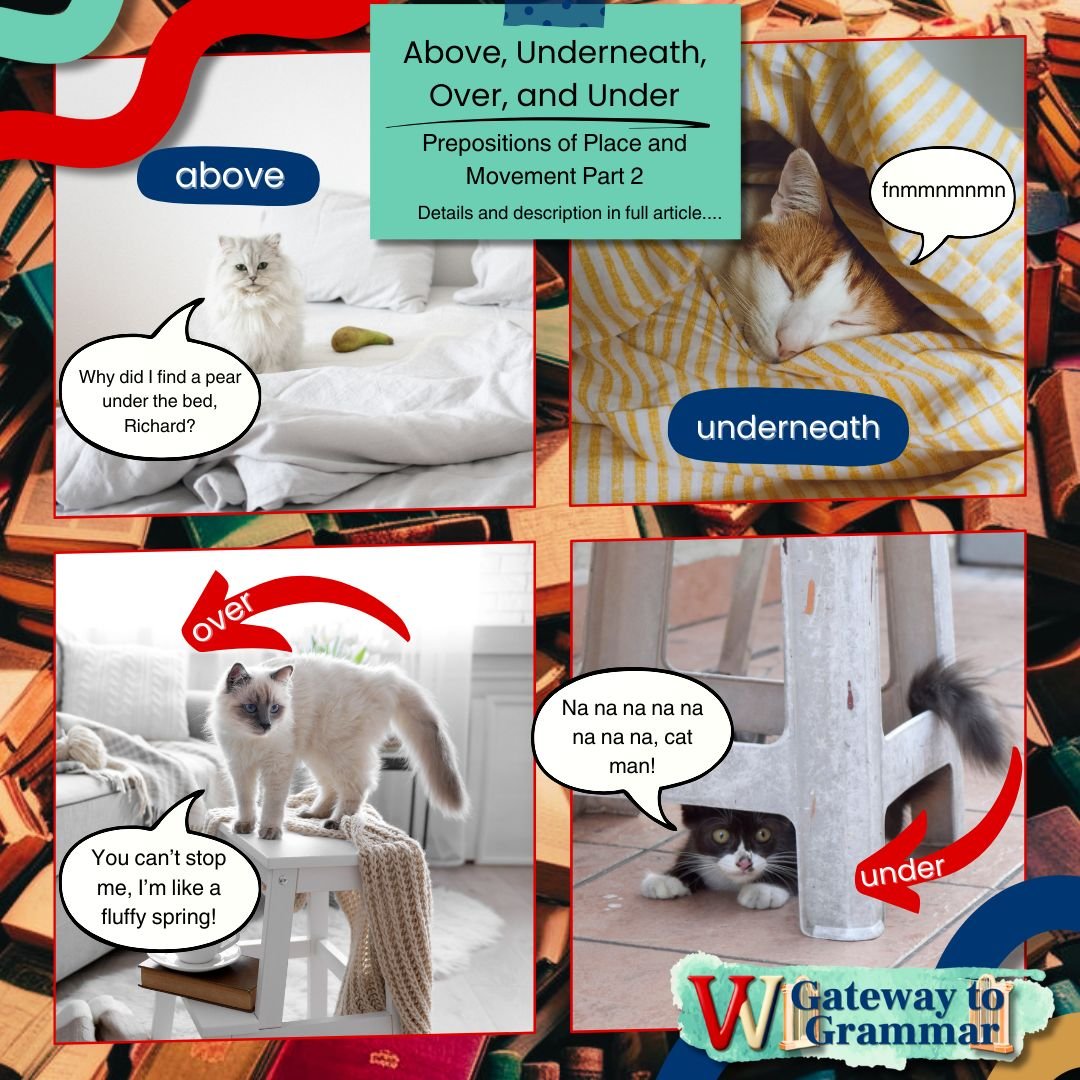
Gateway to Grammar: Prepositions of Place and Movement 2 - Above, Underneath, Over and Under.
Welcome to the second part of Prepositions of Place and Movement, and all the cat pictures that come with it. It’s my mission to include cat pictures whenever possible. We will be adding 2 more prepositions of place and 2 more prepositions of movement this week.

Gateway to Grammar: How to Use ‘In’ and ‘On’ When Staying Still and Moving
‘In’ and ‘on’ are prepositions of place. Prepositions are words that describe a noun’s (in our example a cat’s) relationship with other people or things. Prepositions of place tell you where your noun is in relation to other things.
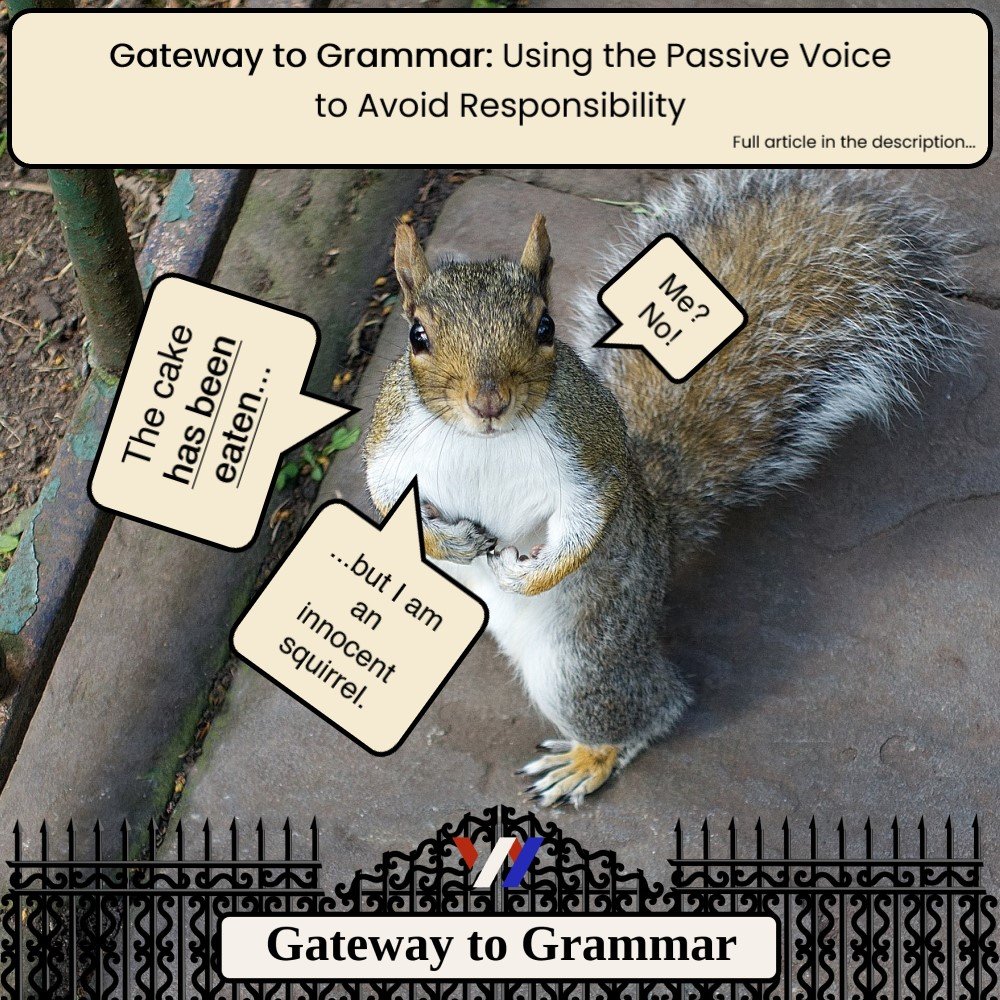
Gateway to Grammar: Using the Passive Voice to Avoid Responsibility
We live in a time when people publicly apologise for doing something wrong, and that’s a good thing… usually. It’s a good thing when people take responsibility (say they did it), and when they really mean it when they say sorry. That’s why we are going to look at the passive voice today, and how people use it to fake an apology that they don’t really mean.
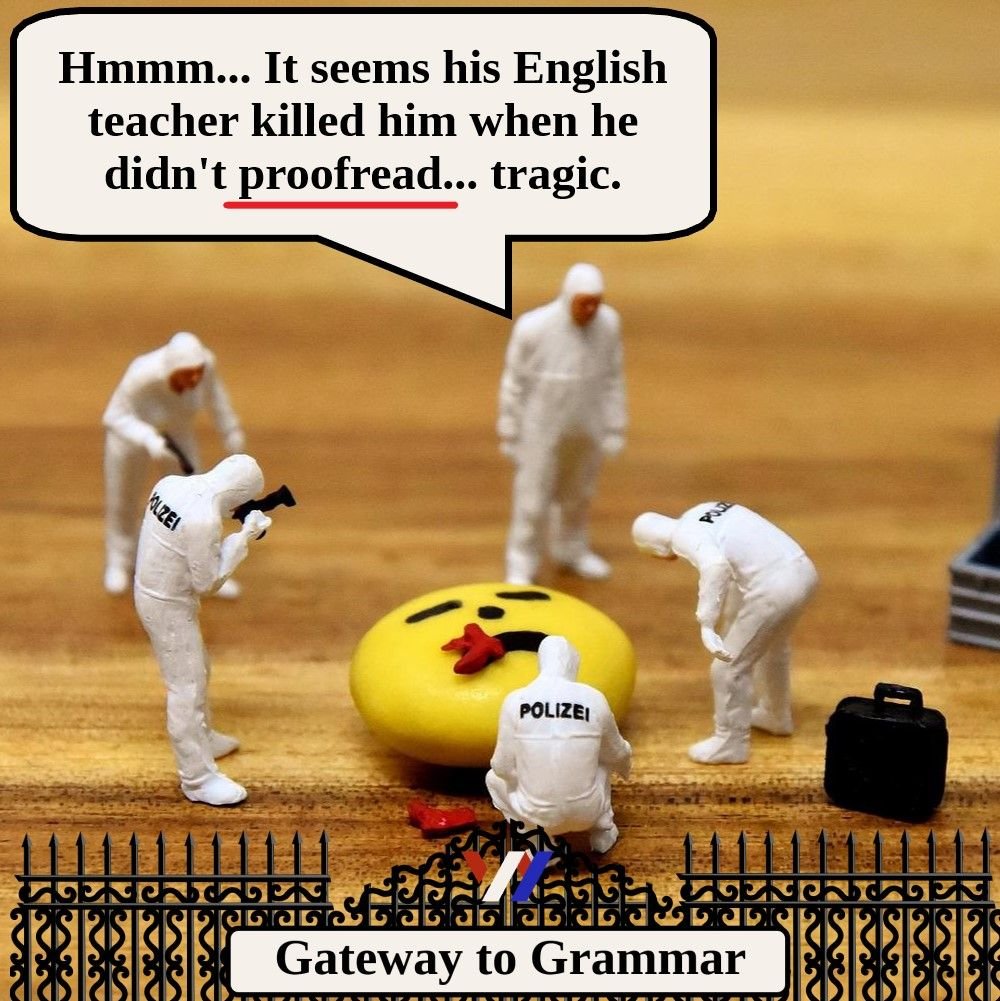
Gateway to Grammar: Please Proofread
Oh, look everybody! It’s that time of the week again where I scream at everyone to proofread!
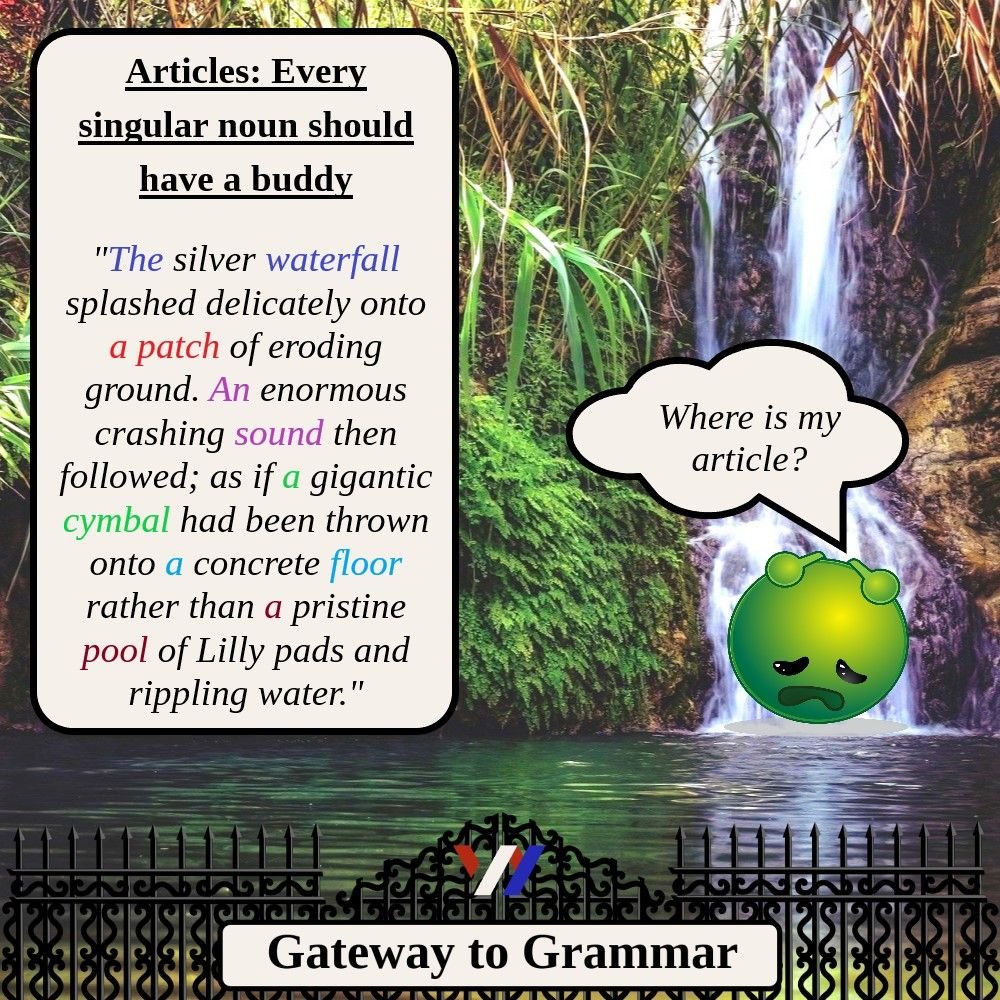
Gateway to Grammar: Every singular noun needs an article
Today I’m here to remind you that every singular noun needs a buddy (friend)…

Gateway to Grammar: Are tables best for learning verbs?
There are some really good reasons to learn verbs in a table, and that is what I will explain today.

Gateway to Grammar: Verb Families pt.6 - “ame”
It’s part six of Verb Families!
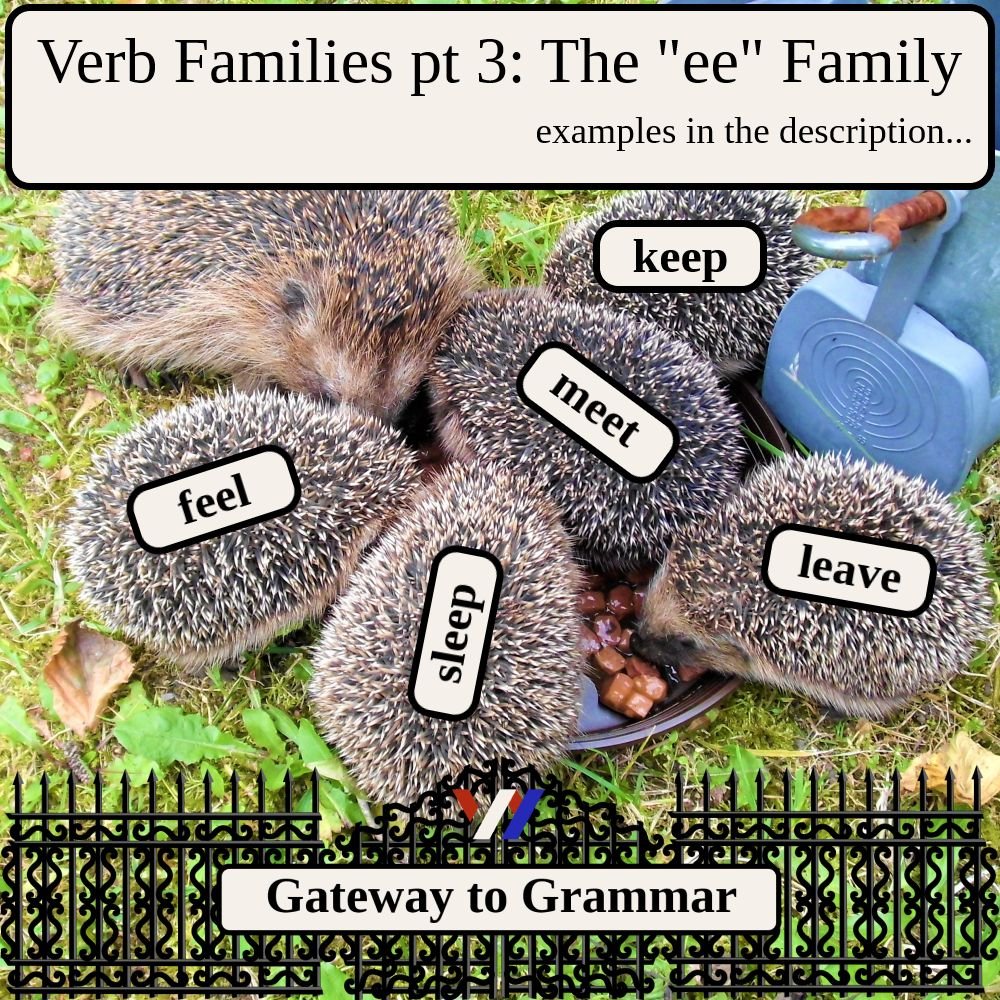
Gateway to Grammar: Verb Families pt.3 “ee”
It is part three of the Verb Family series. This is a great way to learn how to put verbs into the past simple and present perfect tenses in English.
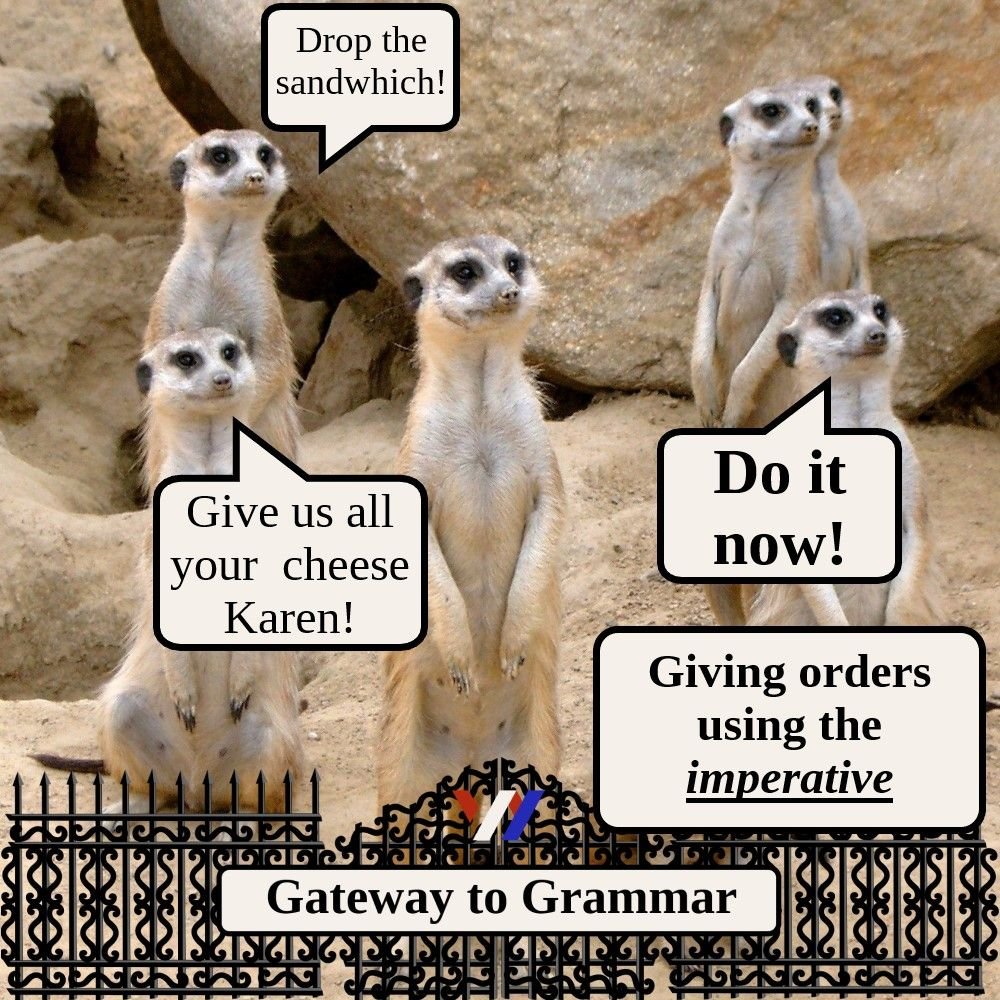
Gateway to Grammar: The imperative clause for orders
Give those guys some cheese Karen! That is an order! It is also imperative (which means important). The name of the grammar used to give orders? The imperative!
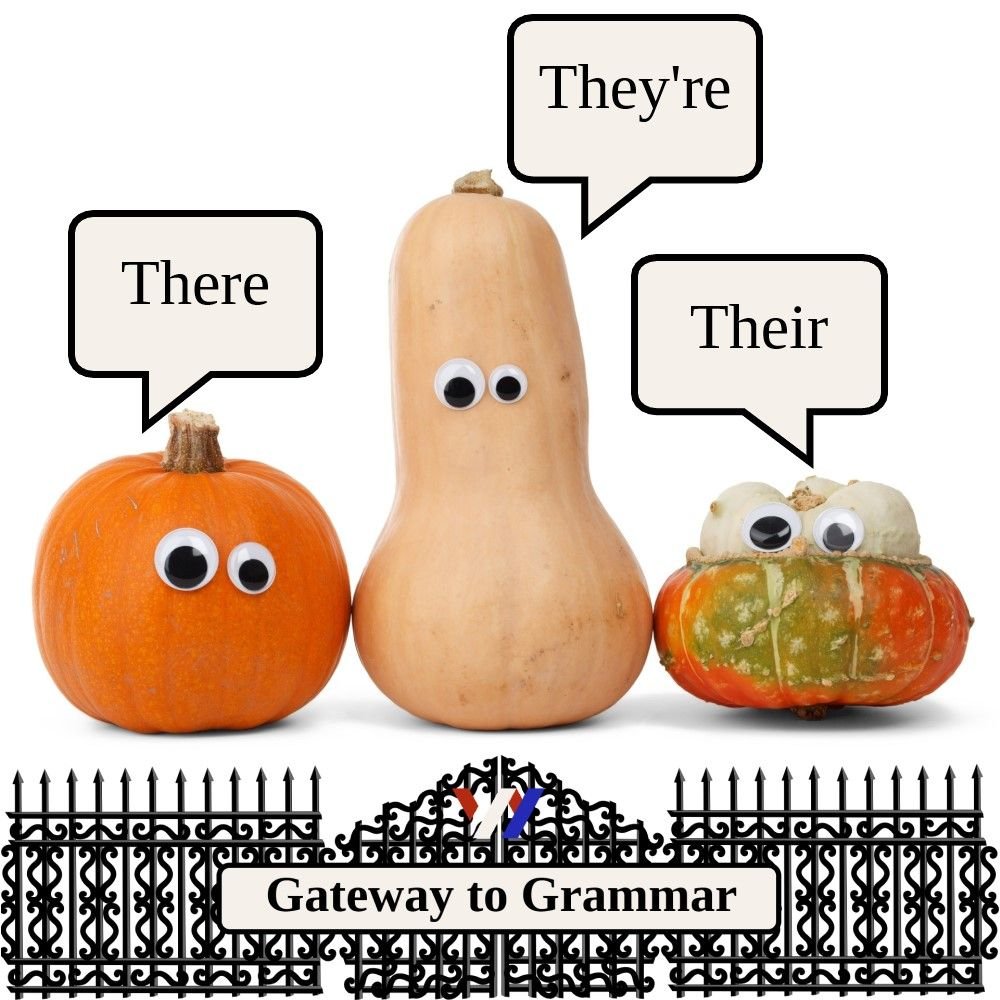
Gateway to Grammar: There, they’re and their!
Why does the English language have three words that sound exactly the same, are spelled very similarly, and they mean totally different things?

Gateway to Grammar: Asking and Telling
It is useful to look at the difference between asking someone to do something, and telling them to do something.

Gateway to Grammar: Past simple tense
Did you know “was” is from the verb “be”? It is an irregular verb, so it does not follow the same rules as all the other verbs.
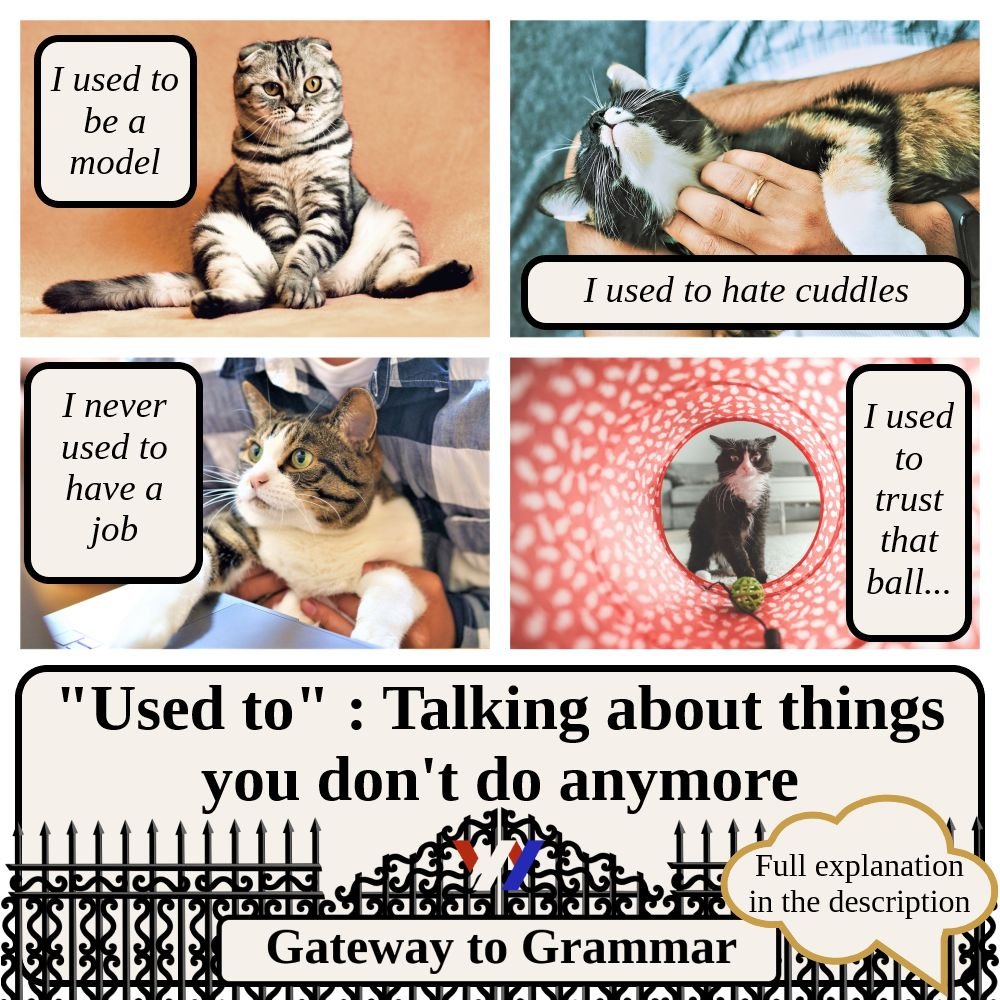
Gateway to Grammar: “Used to” things you don’t do anymore
I used to be lonely. Now I have 2 cats, around 100 bees, and more mice brought to me every day than I can deal with! So, what does “used to” mean?
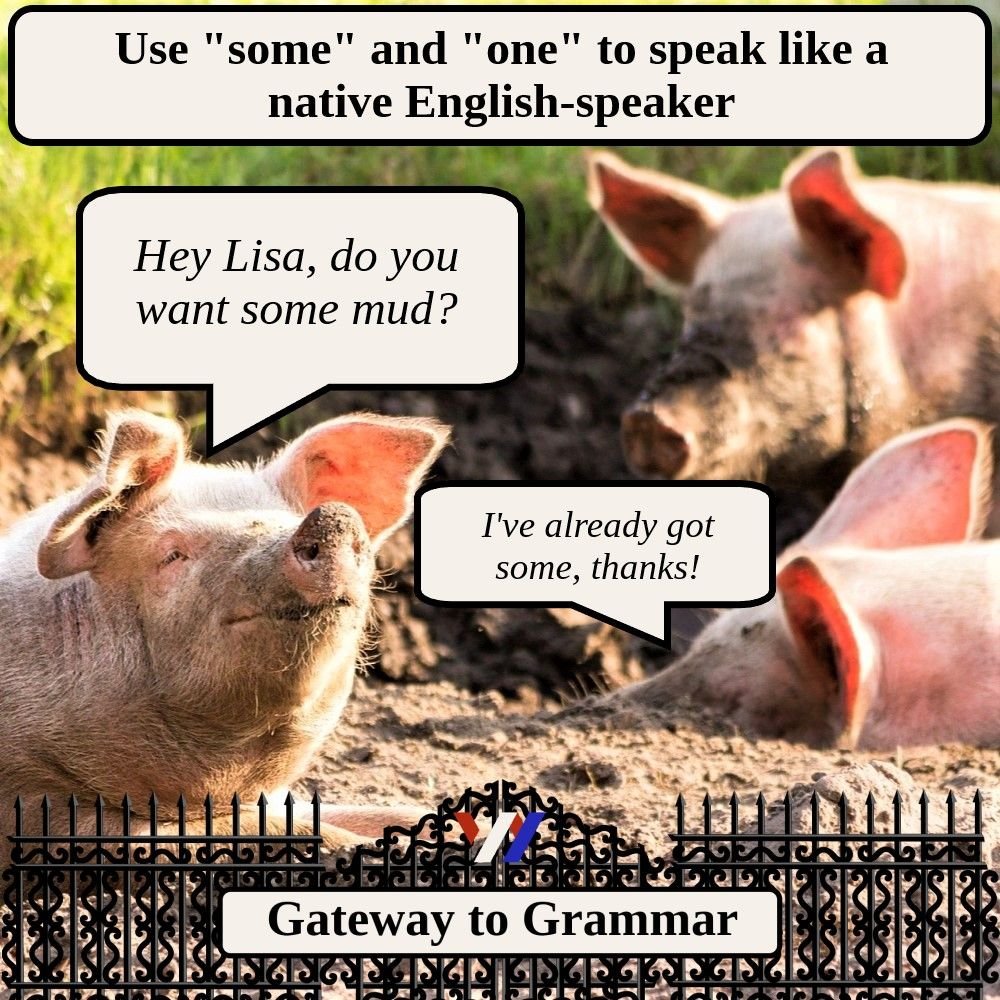
Gateway to Grammar: Some and one to speak like a native English-speaker
When someone asks if you want something, the conversation can sound like this for non-native English-speakers…
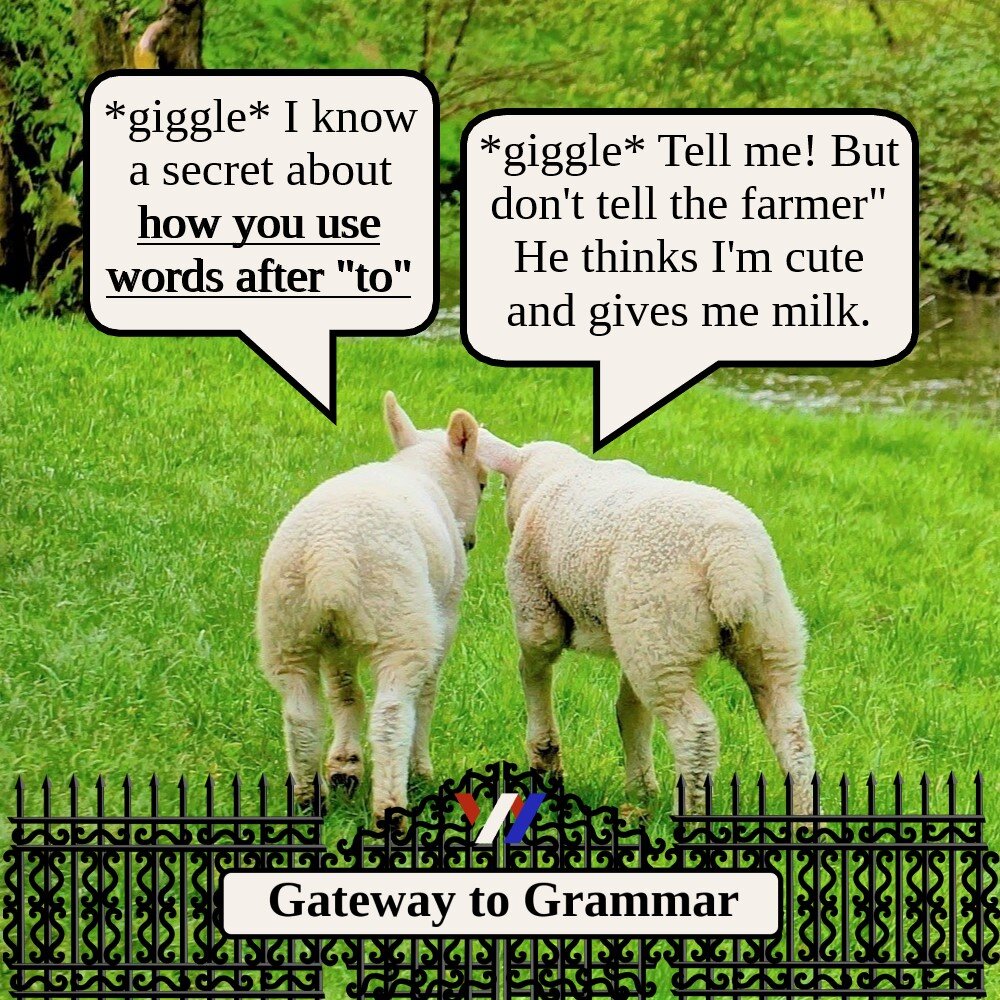
Gateway to Grammar: To infinitives and beyond!
Some people find it difficult to know when to use verbs in their infinitive form (with no changes like “love” “eat” etc). This tip will not help you with all infinitives, but it will help you with many!
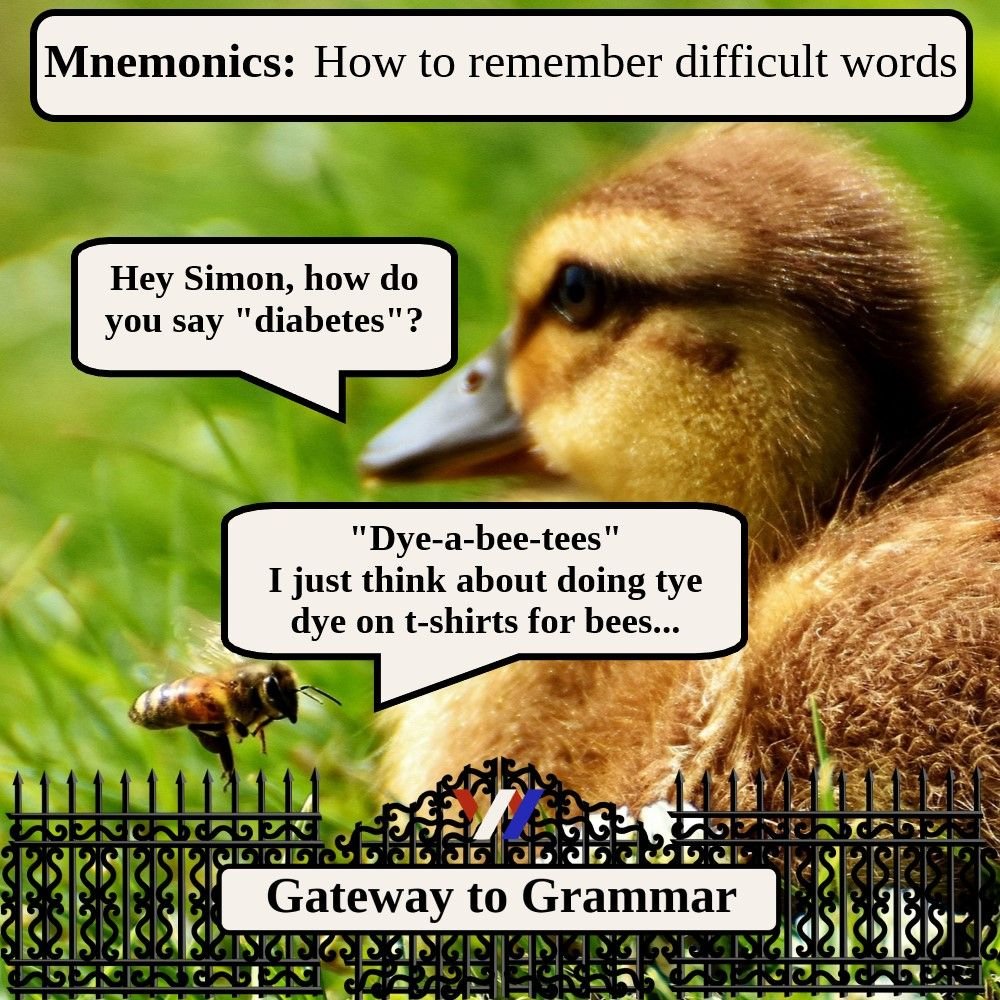
Gateway to Grammar: Mnemonics to remember difficult words
Let’s talk about mnemonics and how they can help you remember difficult spellings, vocabulary, and pronunciations for words.
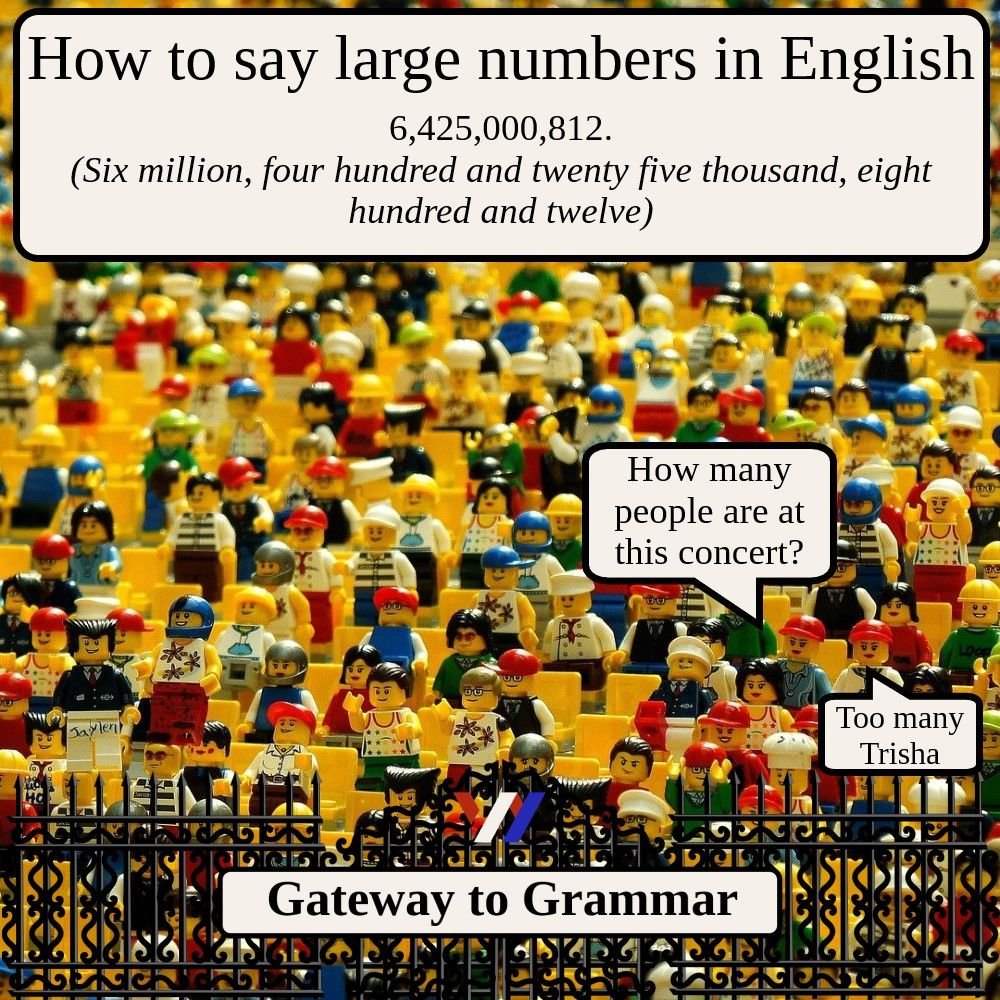
Gateway to Grammar: How to say large numbers in English
When the numbers get higher than a hundred it can get a bit difficult trying to work out how to say them.

Gateway to Grammar: 5 most common irregular verbs in the past
To help you improve your past tenses I have taken the five most common verbs in English, and we will look at the past forms of these words.

Gateway to Grammar: The Word Sandwhich (nouns, verbs, adjectives, and adverbs)
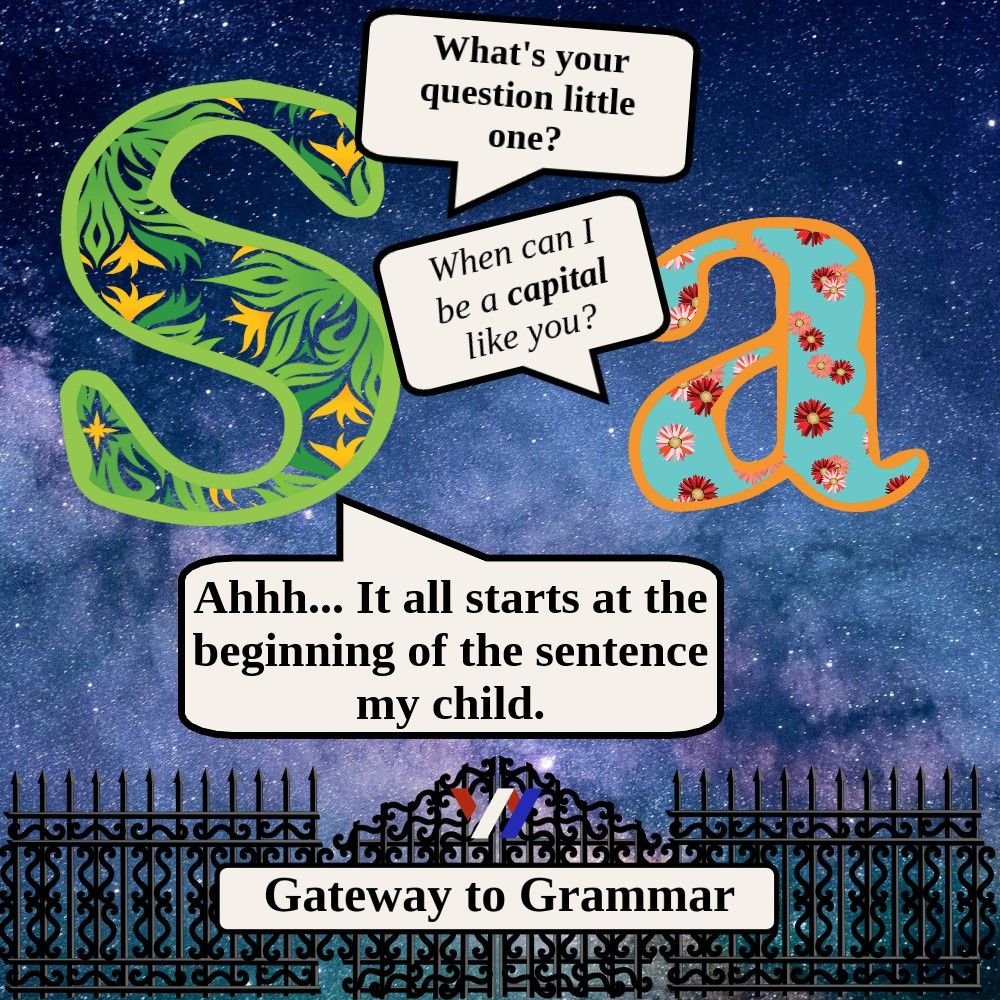
Gateway to Grammar: When to use capital letters in English
In some languages, like German and Russian, the capitalisation (using big letters) is quite complicated. Germans capitalise every noun for example. The good news is it’s a lot easier in English!
